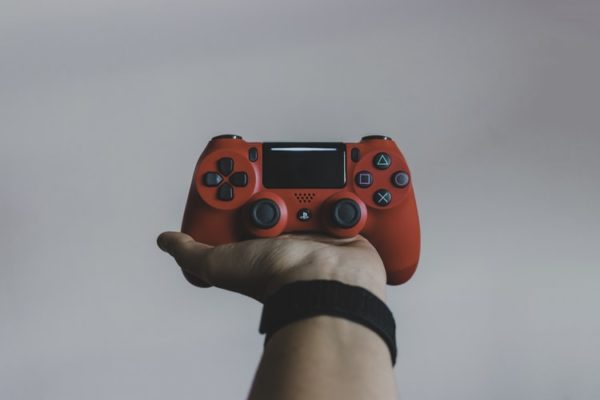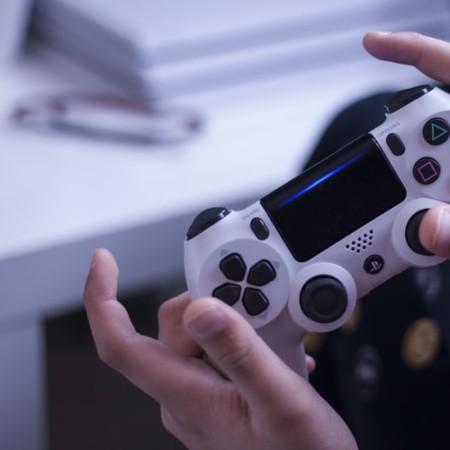Our world is moving online a little more each day. With increasing power, reliance and trust given to the internet as part of our daily lives, new challenges and dangers are constantly springing up, especially when it comes to our kids.
From Twitch to Fortnite, apps and online games provide wonderful opportunities for our children to learn, play and make new friends, but how do you know your little ones are staying safe online?
We’ve teamed up with CyberSafeIreland to find out how to keep children safe online using practical tips and tricks, as well as some technological know-how.
What does internet safety mean?
Online safety basically means having the knowledge you need to stay safe online, whether that is being able to identify potential dangers, or knowing how to protect your private information.
Safe online practices for children include everything from not sharing any personal information including financial details, not engaging with strangers and protecting them against cyberbullying.
Why is internet safety important?
The online world opens up a whole host of new ways to meet people, new experiences and with that, new dangers. From behind a screen, some people feel more confident doing things they never normally would in everyday life, like chatting to a stranger.
These open boundaries, coupled with how hard it can be to supervise your child’s online activity, can lead them into situations they’re not comfortable with and even put them in harm’s way. Luckily, there are steps you can take to help keep kids safe online, and to teach them how to protect themselves in the future.
Consoles like the Xbox, PlayStation and Nintendo Switch all have online gaming features that allows them to play with people they don’t know offline, so getting to grips with how to protect children online is important if your child is about to start gaming.
What age should I let my kids start online gaming?
 It’s difficult to set an exact age that is appropriate for children to start gaming online, as it depends on a few different factors; how mature the child is, for example, along with your capacity to supervise game play and the types of games being played.
It’s difficult to set an exact age that is appropriate for children to start gaming online, as it depends on a few different factors; how mature the child is, for example, along with your capacity to supervise game play and the types of games being played.
It’s up to you when you let your child begin online gaming, however we recommend always choosing age appropriate games for them to play.
Our guide to buying a device for your children has all the information you need about which consoles are appropriate for children of any age, as well as our pick of the best games for kids.
What are the benefits of online gaming for kids?
Of course, playing online opens up a whole world of possibilities for kids to learn and grow.
1. Online gaming encourages creativity
There are plenty of online games for kids out there that encourage creativity over competition. Games like Minecraft allow children to build their world around them, encouraging planning, spatial awareness and a creative mindset.
2. Games can be educational
From virtual crossword puzzles to math quizzes, there are plenty of online games for children that help them learn as they play. Online gaming can help kids learn new cognitive skills, improve their reflexes and teach them new decision-making abilities.
3. Online gaming can build teamwork skills
Similar to playing a sport, playing games online can help your kids learn how to work as part of a team, a skill that is crucial in later life.
4. Online gaming can turn into a career in later life
In 2020, being a gamer or games tester can be an incredible career option for some! sports. According to Forbes, “the ten top-earning gamers have a combined 270 million followers across YouTube, Twitch and Mixer and earned $121 million last year”.
So, how to keep your children safe online?
We know the dangers of online gaming for kids, but how do we protect them?
Thankfully, CyberSafeIreland has great guidelines for the kinds of rules and practices you should follow at home when you allow your kids to play online.
Buy an appropriate device
If your kids are starting from scratch with online gaming, choosing the right device for them is the first step.
Gaming devices come in all shapes and sizes, and there is one suitable for every age group, from kids tablets to the latest PlayStation. Our guide to buying devices for kids will help you pick the right consoles for your family.
Parental controls
Most gaming consoles come with built-in parental controls that allow you to set limits on what your kids can do.
You could set time limits for how long your child can play per day, for example, or choose specific friends that they can play with online. Better yet, only play against the computer!
Similar to gaming consoles, mobile phones usually have built-in parental controls that allow you to limit what your child can do; you can choose what kind of apps they can download and the amount of screen time they can have, for example.
Have conversations about gaming
Keep an open dialogue with your child about online gaming to make sure they understand why limits are set and what the dangers can be. Building trust on the subject will not only help your children protect themselves online, they’ll also feel comfortable coming to you with any issues they might face.
Set some ground rules
CybersafeIreland’s list of House Rules for gaming has everything you need for keeping kids safe online.
1. Real-life friends only
Kids should only play with their real-life, offline friends online – no strangers!
2. Friendly in-game behaviour
Encourage your kids to be kind and friendly online, and to report and block bad behaviour.
3. Suitable games only
Check the PEGI rating for every game your child plays.
4.Limit times
Spread game time across the day into different sessions and games.
5. In-game spending
Don’t allow it, or only allow it on special occasions. Keep a close eye out and set spending limits.
Get involved
One of the best ways to supervise your child’s game play is to play along with them! Gaming is a fun activity for the whole family, and getting involved can help you teach your child about healthy gaming behaviour, as well as give you an in-depth look at what they’re playing.
Finally, stay informed
It’s a fast-paced industry, but keeping up to date with the latest games, gaming platforms and consoles is an excellent way of understanding what your child is playing. Get to grips with any gaming terms they mention, look up any new consoles they might ask for, and follow any new advice when it comes to streaming platforms.
Gaming disorders
There has been a lot of buzz in recent years around gaming addiction, with ‘gaming disorder’ being added to a list of mental health issues identified by the World Health Organisation in 2018, so it’s understandable that you might worry about your child developing an addiction.
A gaming disorder is classified as a behaviour pattern that significantly impairs important areas of functioning in your child’s life, like family interactions and education. Preventing your child from becoming addicted to gaming takes a few simple steps.
- Set strict time limits for gaming.
- Set house rules, and stick to them.
- Watch for symptoms like long gaming times, preoccupation with a game or the child foregoing sleep or food to extend game play time.
What do I do if my child is being cyberbullied?
Bullying of any kind can be difficult to deal with, but cyberbullying comes with its own set of problems to face – it can be easy for bullies to act when hidden behind the safety of a screen.
There are a few main steps to take when you find out your child is a victim of cyberbullying:
- Keep an open line of communication and trust. It’s important that your child feels they can discuss these issues with you.
- Reassure them. They need to know it’s not their fault and they’re not being punished.
- Teach them how to use blocking and reporting functions on games and apps. Encourage them not to respond to any communication from bullies.
- Double check parental control and privacy settings.
If the matter is more serious, consider going to your child’s school or to the police if necessary, especially if the behaviour involves harassment, threat of harm or indecent images.
Everything you need to know about online safety
Staying safe should always be top priority when your kids are online gaming. CyberSafeIreland has all the information you need on safe internet practices for children, plus a wealth of tips and advice on gaming safety too.

